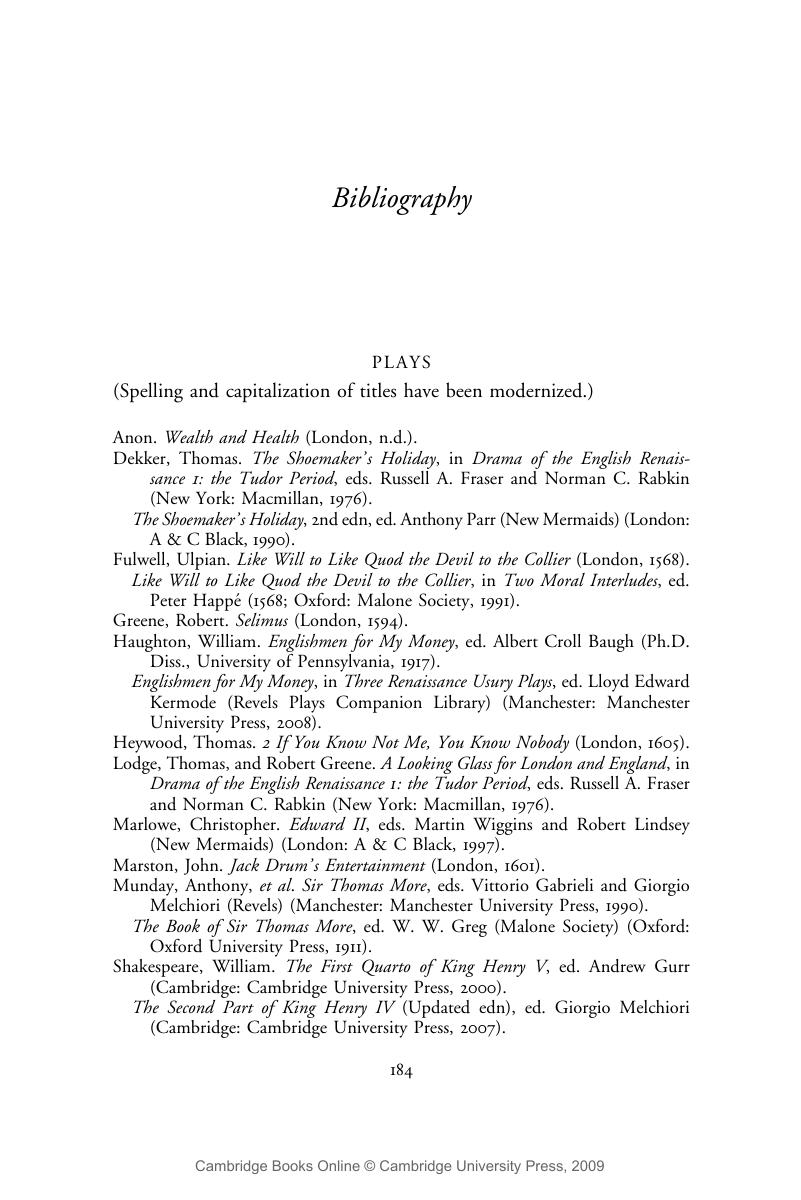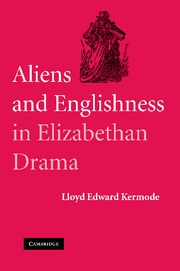Book contents
- Frontmatter
- Contents
- Preface
- Acknowledgements
- 1 Introduction – aliens and the English in London
- 2 Discovering the alien in Elizabethan moral drama
- 3 Accommodating the alien in mid-Elizabethan London plays
- 4 Incorporating the alien in Shakespeare's second tetralogy
- 5 Being the alien in late-Elizabethan London plays
- Postscript: Early modern and post-modern alien excursions
- Notes
- Bibliography
- Index
- References
Bibliography
Published online by Cambridge University Press: 28 June 2009
- Frontmatter
- Contents
- Preface
- Acknowledgements
- 1 Introduction – aliens and the English in London
- 2 Discovering the alien in Elizabethan moral drama
- 3 Accommodating the alien in mid-Elizabethan London plays
- 4 Incorporating the alien in Shakespeare's second tetralogy
- 5 Being the alien in late-Elizabethan London plays
- Postscript: Early modern and post-modern alien excursions
- Notes
- Bibliography
- Index
- References
Summary

- Type
- Chapter
- Information
- Aliens and Englishness in Elizabethan Drama , pp. 184 - 197Publisher: Cambridge University PressPrint publication year: 2009



